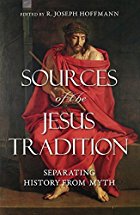
Richard Carrier is well known for his advocacy of the use of the Bayes’ theorem in historical Jesus studies. (Find the link to Bayes’ Theorem for Beginners here or go direct to the pdf article here.) Carrier has enumerated its advantages, and I highlight the ones that are my own personal favourites (all quotations are from the pdf article, Bayes’ Theorem for Beginners):
1. Helps to tell if your theory is probably true rather than merely possibly true
2. Inspires closer examination of your background knowledge and assumptions of likelihood
3. Forces examination of the likelihood of the evidence on competing theories
4. Eliminates the Fallacy of Diminishing Probabilities
5. Bayes’ Theorem has been proven to be formally valid
6. Bayesian reasoning with or without math exposes assumptions to criticism & consequent revision and therefore promotes progress
The reason 2, 3 and 6 stand out for me is because they are at the heart of my past criticisms of historical Jesus studies that typically begin with assumptions of historicity, and avoid (or fail to comprehend or even attack) alternative explanations that do not support those assumptions. One does not really need Bayes theorem to expose your assumptions to criticism, but the formality of this method does potentially encourage stronger awareness of where we may be failing to do this adequately. Continue reading “Bayes’ theorem and the Jesus mythicism-historicity conflict”

 Continuing from the previous post, addressing McGrath’s
Continuing from the previous post, addressing McGrath’s  Thanks to
Thanks to 
